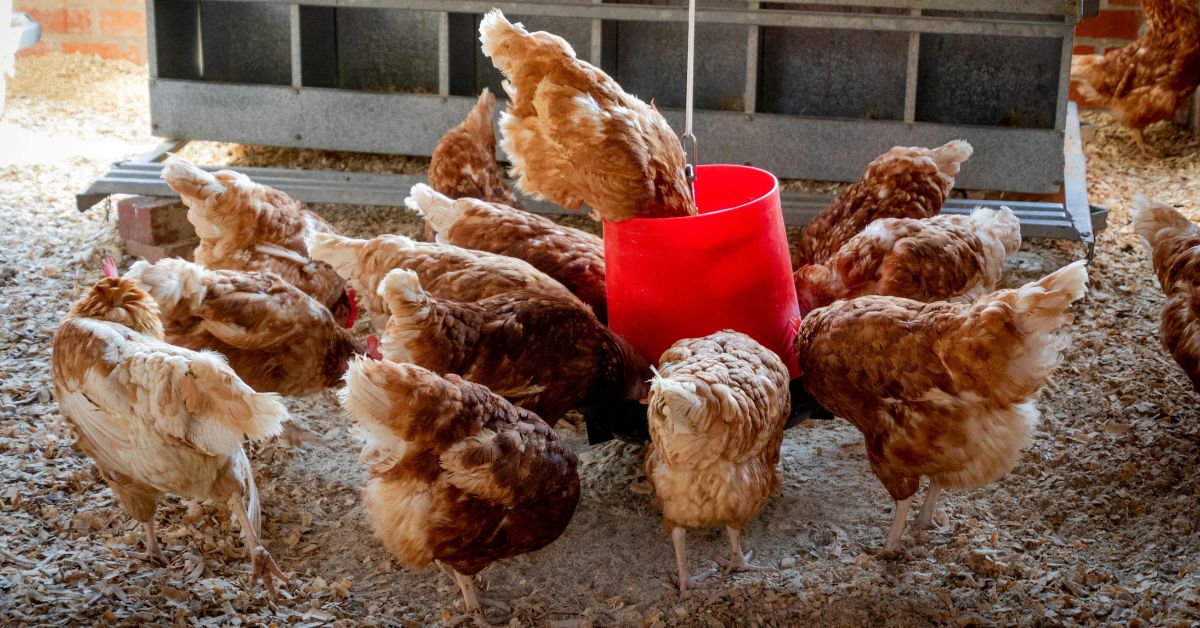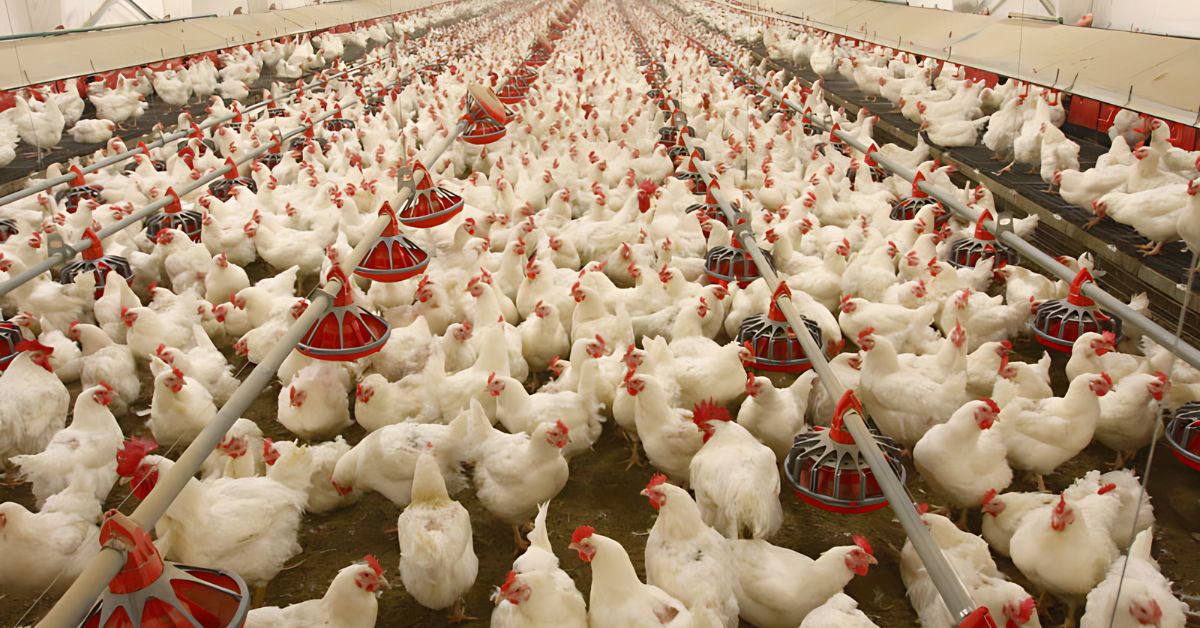RIYADH — Saudi Arabia’s poultry industry hit a milestone in February 2024, marking a record-breaking production of 100 million kilograms. This achievement signifies a giant leap forward in the Kingdom’s agricultural sector, particularly in poultry farming, thanks to a robust partnership between the government and private enterprises.
The Saudi Arabia’s Ministry of Environment, Water and Agriculture (MEWA) has lauded this accomplishment, underscoring the pivotal role of the Agricultural Development Fund in nurturing the growth of poultry projects through critical support and funding.
The ministry has also stressed the importance of stringent biosecurity measures, ensuring these projects meet the highest international standards. This focus on quality and safety has not only elevated the standards of local poultry production but has also set a benchmark for the industry worldwide. It’s a strategic move that aligns with Saudi Arabia’s Vision 2030, aiming to diversify the economy and reduce its dependency on oil by empowering the private sector and enhancing its contribution to the nation’s GDP.
Private sector companies have been at the forefront of this remarkable production growth, earning the “Saudi GAP” quality mark—a testament to their excellence and commitment to the industry. This accolade is not merely a badge of honor but a reflection of the rigorous standards and innovative practices adopted by these enterprises to drive sustainable growth.
At A Glance Record Production Milestone: In February 2024, Saudi Arabia's poultry industry achieved a landmark by producing 100 million kilograms of poultry, setting a new global benchmark. Government-Private Partnership: The achievement highlights the effective collaboration between the government and private enterprises, particularly noting the support from the Ministry of Environment, Water and Agriculture (MEWA) and the Agricultural Development Fund. Biosecurity and Quality Standards: Emphasis on stringent biosecurity measures has elevated local production standards to meet and set global benchmarks, aligning with Saudi Arabia's Vision 2030 for economic diversification. Saudi GAP Quality Mark: Private sector companies leading in production growth have been awarded the "Saudi GAP" quality mark, reflecting their commitment to excellence and sustainable practices. Strategic Sector Development: MEWA's targeted focus on the agricultural sector, especially poultry farming, positions Saudi Arabia as an emerging powerhouse in the global poultry market. Growing Popularity in GCC: Poultry meat, especially chicken, sees soaring demand in the GCC region, with nearly 16 percent sales increase from 2019 to 2022, indicating a shift towards local production to meet consumer needs. Aim for Self-Sufficiency: Saudi Arabia targets 80 percent self-sufficiency in poultry meat production by 2025, reducing import dependency, with major contributions from leading companies like Al Watania Poultry, Al-Fakieh, and Almarai. Consumer Trends Influencing Market: The shift towards fresh and chilled poultry products over frozen alternatives and the rising popularity of processed meats among millennials are shaping the market dynamics. Health Trends Boost Poultry Consumption: Increasing preference for white meat over red meat, due to health benefits, is influencing consumer choices and driving the growth of the poultry segment. Vision 2030 Alignment: The record-breaking production is not just a milestone but a testament to Saudi Arabia's commitment to food security, economic diversification, and sustainable development, underpinning the nation's Vision 2030 objectives.
The poultry sector’s success story is part of a broader narrative of agricultural advancement in the Kingdom. MEWA’s strategic focus on the agricultural sector, particularly poultry farming, has been instrumental in achieving this growth. By prioritizing sector-specific development, Saudi Arabia is rapidly emerging as a formidable player in the global poultry market, challenging traditional powerhouses and setting new records.
In the GCC region, poultry meat enjoys unparalleled popularity, with sales soaring by nearly 16 percent from 2019 to 2022. Chicken meat, in particular, dominates consumer preferences over turkey, duck, and goose. The region’s appetite for poultry is fueled by a growing demand for fresh chicken, challenging traditional importers and opening avenues for local production to meet this demand head-on.
The GCC’s reliance on imports, nearly US$4 billion annually, underscores the importance of local production capacity to achieve food security. Saudi Arabia’s ambitious goal to attain 80 percent self-sufficiency in poultry meat production by 2025 reflects a strategic move towards reducing dependency on imports. Major players like Al Watania Poultry, Al-Fakieh, and Almarai are spearheading this initiative with significant investments, positioning the Kingdom as a leader in the sector.

This expansion in local production capacity is timely, as consumer preferences are shifting towards fresh and chilled poultry products over frozen alternatives. Despite the competitive challenge in the frozen poultry sector, GCC producers are gaining a competitive edge in the fresh and chilled market segments.
Moreover, the GCC processed meat market is witnessing a transformation driven by changing consumer behaviors and lifestyle trends. The rising popularity of processed meat among millennials, driven by convenience and taste, is contributing to the sector’s growth. Quick Service Restaurants (QSRs) like McDonald’s and KFC are capitalizing on this trend, partnering with local producers to cater to the burgeoning demand for hassle-free, tasty food options.
A significant shift towards white meat consumption, motivated by health considerations, is further fueling the growth of the poultry segment. Consumers are increasingly opting for poultry over red meat, driven by the lower cholesterol and trans-fat content in white meat. This trend is poised to solidify poultry’s dominance in the GCC processed meat market, aligning with global dietary shifts towards healthier, more sustainable food choices.
Saudi Arabia’s record-breaking poultry production is a testament to the Kingdom’s commitment to food security, economic diversification, and sustainable development. As the nation strides towards achieving its Vision 2030 objectives, the poultry industry’s success story offers a blueprint for growth, innovation, and collaboration in the agricultural sector.








